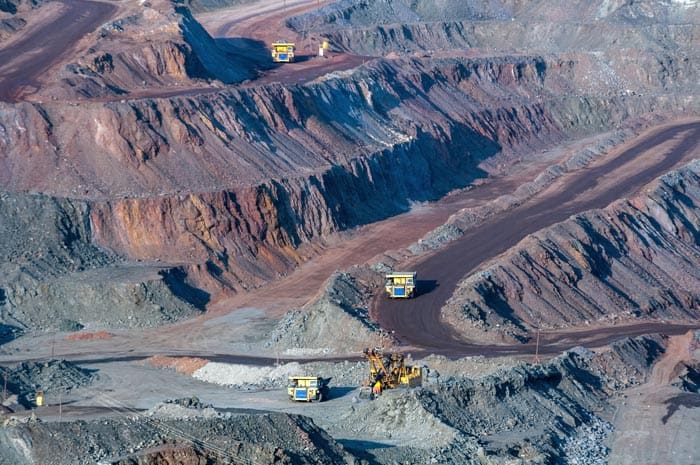 The COVID-19 pandemic continues to have a catastrophic human, social, and economic impact. Many countries promptly initiated economic relief packages to protect their economies from a long-lasting recession. Governments have supported affected businesses in particular, either through direct subsidies and, more often in developing countries, through tax relief. In April, IGF and the African Tax Administration Forum (ATAF) produced a guide to help governments design tax relief measures for the mining sector, or respond to company requests for such measures. We then organized three webinars to discuss these findings with government officials and the general public, the first two in English and French, the third in Spanish, in partnership with the Inter-American Center of Tax Administrations (CIAT). Below are three lessons we take from these discussions:
The COVID-19 pandemic continues to have a catastrophic human, social, and economic impact. Many countries promptly initiated economic relief packages to protect their economies from a long-lasting recession. Governments have supported affected businesses in particular, either through direct subsidies and, more often in developing countries, through tax relief. In April, IGF and the African Tax Administration Forum (ATAF) produced a guide to help governments design tax relief measures for the mining sector, or respond to company requests for such measures. We then organized three webinars to discuss these findings with government officials and the general public, the first two in English and French, the third in Spanish, in partnership with the Inter-American Center of Tax Administrations (CIAT). Below are three lessons we take from these discussions:
1. The mining sector has not needed targeted tax relief
We found that there have been very few instances of governments granting specific tax relief to the mining sector in general or to individual mining companies. In South Australia, the government deferred mining industry licence fees. Zambia suspended import duties on copper concentrates as a means of alleviating mining companies’ escalating operating costs as copper prices fell.
However, in most mineral-rich countries, tax relief measures that eventually benefited mining companies were not designed specifically for them. The trackers of tax and fiscal policies in response to COVID-19 published by the OECD and the IMF, contain very few, if any, mining-specific measures. This was in part the result of consistent guidance from international organizations, regional technical bodies such as ATAF, and tax experts everywhere. Such guidance recommended prioritizing tax deferral over tax relief, using economy-wide measures that are easier to administer, or focusing on the most affected and most labour-intensive sectors (services, retail, hospitality, informal economy, etc.).
Most importantly, the mining sector has fared relatively well during this period, or at least was not uniformly affected. Gold and uranium have performed extremely well due to high financial investment demand and restricted supply, respectively. Even minerals initially affected, such as copper and iron ore, are bouncing back. In fact, mining companies have been able to provide logistical support to affected communities, maintain payments throughout their supply chains, and continue paying taxes. In many countries, the mining fiscal regime also contains automatic stabilizers that lower payments in times of crisis—for instance, royalties are proportional to mineral prices, and income taxes are paid on profits.
2. Exploration and development budgets are (temporarily) down
However, investors have cut down capital expenditure in mineral exploration, by 19% for 2020, according to analysis by Reuters. Investment has been initially impacted by measures to contain the virus that have prevented moving staff and equipment to and from project sites, and now by the uncertainty around government interventions in global trade and supply chains and the lack of access to finance.
New investment will be critical to rebuilding public finances post-COVID-19. Governments are already facing pressure from mining companies to provide tax cuts. We strongly recommend that governments avoid using tax incentives to encourage investment. The sector is emerging from the “Great Lockdown” comparatively unscathed, or better off in some cases. Investors will return as markets stabilize and financing becomes available. They already are in the case of gold. Tax incentives, at best, will only speed up investment that would have happened anyway. At worst, they may lead governments to forego vital revenues in return for elusive benefits.
3. There is global impetus for reform of mining taxation
Some resource-rich countries are already considering increasing mining taxes because the sector has performed so well during the crisis. Ghana has envisaged a sliding scale royalty for gold. Mining companies could consider getting ahead of the curve by offering to pre-pay royalties and taxes, or relinquish generous tax incentives, to help meet the estimated USD 2.5 trillion needed by developing countries to cope with the impact of COVID-19.
In the medium term, more countries may increase taxes on the mining sector: there has been a general trend towards higher taxes, the sector has been resilient during COVID-19, governments will need to balance their books, and commodity-dependent countries may not be able to rely on revenue from a declining fossil fuel sector. Colombia, for example, is putting gold before oil and coal, its key export commodities, as a way to boost its economy post-COVID-19. Now is a good time to rethink mining fiscal policy tools. In the coming weeks, IGF and ATAF will announce a new initiative to do just that titled The Future of Resource Taxation.

